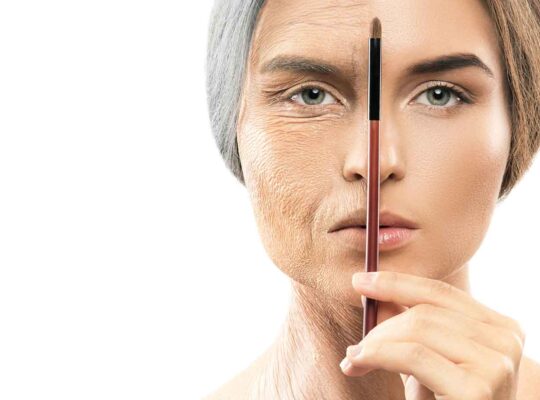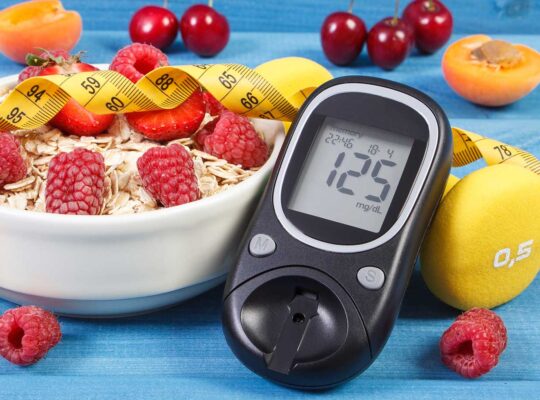Have you ever noticed that you get pimples at the same time every month, or after a really stressful day? Those types of breakouts are often called hormonal breakouts. They happen when your body’s hormones (the chemicals that control many things in your body) cause your skin to make more oil. This extra oil can clog your pores and lead to pimples. In this guide, we’ll help you understand why these breakouts happen and how to stop hormonal breakouts with easy skincare tips, changes to your daily habits, and professional treatments.
1. Understand the Causes of Hormonal Breakouts
Hormonal Fluctuations: How Changing Hormones Cause Acne
Hormonal breakouts happen because of changes in your hormone levels, especially androgens like testosterone (a male hormone that both guys and girls have). When these hormones go up and down, they make your skin produce more sebum (oil). Too much oil clogs your pores, which leads to pimples that can be big, deep, and painful.
When your hormones spike (go up), your body makes more oil. That oil mixes with dead skin cells and bacteria, clogging your pores and causing acne. Hormonal breakouts usually show up around your chin, jawline, and lower face. Unlike regular pimples, hormonal breakouts are deeper and harder to get rid of, which is why they often need special treatments.
2. Implement a Consistent Skincare Routine
Gentle Cleansing: Why Washing Your Face Helps
The first step to stopping hormonal breakouts is having a good skincare routine. Make sure you’re using a gentle cleanser (face wash) that won’t clog your pores. Wash your face twice a day—once in the morning and once at night—to get rid of dirt, oil, and dead skin. This helps keep your pores clear and reduces the chance of breakouts.
Washing your face regularly helps remove the excess oil and dead skin that can clog your pores. It also washes away bacteria that can cause pimples. Be sure not to use harsh cleansers or scrub too hard, as this can irritate your skin and make it produce even more oil.
3. Consider Hormonal Therapies
Oral Contraceptives: How Birth Control Pills Can Help
If hormonal breakouts are a big problem for you, your doctor might suggest hormonal therapy. Birth control pills (also called oral contraceptives) can help by balancing your hormones. They work by lowering the amount of androgens in your body, which means your skin will produce less oil and you’ll get fewer pimples.
Anti-Androgens: Medications That Block Hormones
Another option is anti-androgen medications like spironolactone (a medicine that blocks male hormones). These medications stop your skin from making too much oil, which can help prevent breakouts. Talk to your doctor to see if this treatment might be right for you.
4. Use Topical Treatments
Retinoids: How They Help Unclog Pores
Retinoids (a type of medicine made from vitamin A) are great for treating hormonal breakouts. They help unclog your pores and make your skin cells turn over faster, which can prevent pimples from forming. Retinoids are available in both over-the-counter and prescription versions, depending on how strong they are.
Benzoyl Peroxide and Salicylic Acid: Fighting Acne with Science
Two other popular treatments for acne are benzoyl peroxide and salicylic acid. Benzoyl peroxide kills the bacteria that cause acne, while salicylic acid helps exfoliate (get rid of) dead skin cells that can clog pores. Using these treatments regularly can help stop hormonal breakouts.
5. Incorporate Dietary Changes
Reduce High-Glycemic Foods: Why Eating Less Sugar Helps
What you eat can have a big impact on your skin. Foods that are high in sugar or refined carbs (like candy, white bread, and soda) can spike your blood sugar levels. This causes your body to make more insulin, which can increase oil production and lead to breakouts. Try to limit these types of foods to help keep your skin clear.
Anti-Inflammatory Diet: Eating Foods That Fight Acne
Eating an anti-inflammatory diet can also help reduce hormonal breakouts. Foods like fish, nuts, and seeds are rich in omega-3s, which help reduce inflammation (swelling) in the body. Inflammation can make acne worse, so eating these foods can help keep your skin calm and clear.
6. Manage Stress Levels
Stress Reduction Techniques: Relaxing to Help Your Skin
Stress can make your breakouts worse. When you’re stressed, your body makes more cortisol (the stress hormone), which can cause your skin to produce more oil. Finding ways to relax, like doing yoga, meditating, or taking deep breaths, can help lower your cortisol levels and keep your skin from breaking out.
Scientific Explanation
When cortisol levels go up, your skin starts producing more oil, which can clog your pores and cause pimples. By managing your stress, you can help lower cortisol levels and reduce the chances of hormonal breakouts.
7. Consider Supplements
Zinc and Omega-3s: Boosting Your Skin’s Health
Some supplements can help reduce hormonal breakouts. Zinc helps fight inflammation, while omega-3s (found in fish oil) can help balance your hormones and reduce oil production. These nutrients are important for healthy skin, and taking them as supplements or through your diet can help keep acne under control.
Other Supplements
Other supplements, like DIM (a compound found in vegetables like broccoli and kale) and probiotics (healthy bacteria that improve digestion), may help balance your hormones and reduce acne. Always talk to your doctor before starting new supplements.
8. Seek Professional Advice
Dermatological Consultation: Why a Doctor Can Help
If your hormonal breakouts are really bad or just won’t go away, it’s a good idea to see a dermatologist (skin doctor). They can recommend treatments like prescription creams, pills, or even special light therapy to help clear up your skin.
Long-Term Management: How to Keep Breakouts Away
Managing hormonal breakouts isn’t a one-time fix. It’s something you’ll need to keep working on. A dermatologist can help you develop a plan to keep your skin clear for the long term, with treatments that suit your specific needs.
Conclusion
Hormonal breakouts can be frustrating, but there are ways to stop them. By understanding what causes them, sticking to a skincare routine, and making healthy lifestyle choices, you can reduce the number of breakouts you have. If your breakouts are severe or don’t improve, consider talking to a dermatologist who can help you find the best treatments.
Have you experienced hormonal breakouts? Share your tips and experiences in the comments! And if you’re struggling with persistent acne, don’t hesitate to seek professional advice from a healthcare provider or dermatologist.
FAQs
- What causes hormonal breakouts?
- Hormonal breakouts are caused by changes in hormones, especially androgens, which increase oil production in your skin.
- Can birth control pills help with hormonal acne?
- Yes, birth control pills can help by balancing hormones and reducing the amount of oil your skin makes.
- What are some good skincare products for hormonal breakouts?
- Retinoids, benzoyl peroxide, and salicylic acid are great for treating and preventing breakouts.
- Can diet affect hormonal breakouts?
- Yes, eating less sugary foods and more anti-inflammatory foods like fish and nuts can help reduce acne.
- Does stress make hormonal acne worse?
- Yes, stress increases cortisol levels, which can cause your skin to produce more oil, leading to breakouts.
- When should I see a dermatologist for hormonal acne?
- If your breakouts are severe, painful, or won’t go away with over-the-counter treatments, it’s a good idea to see a dermatologist.






